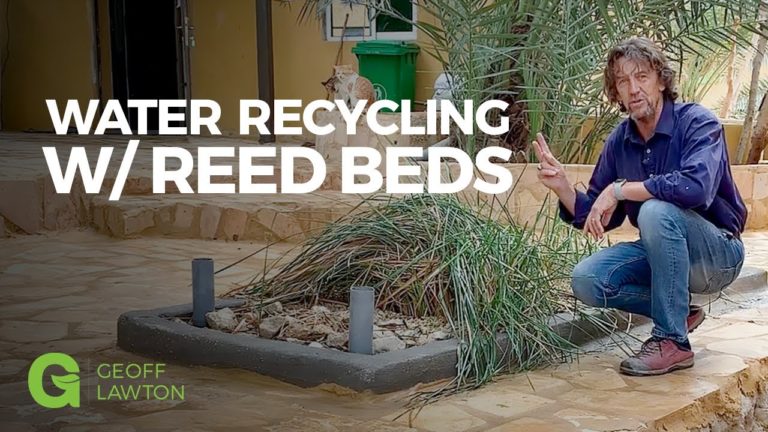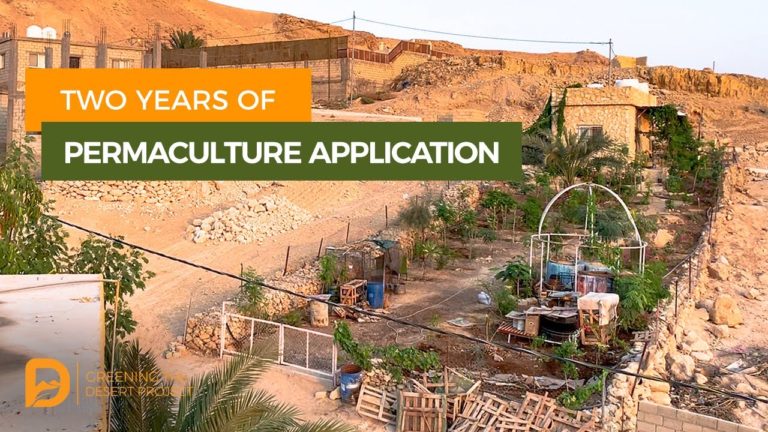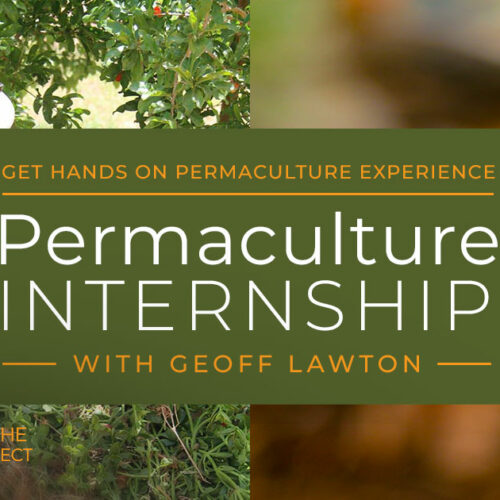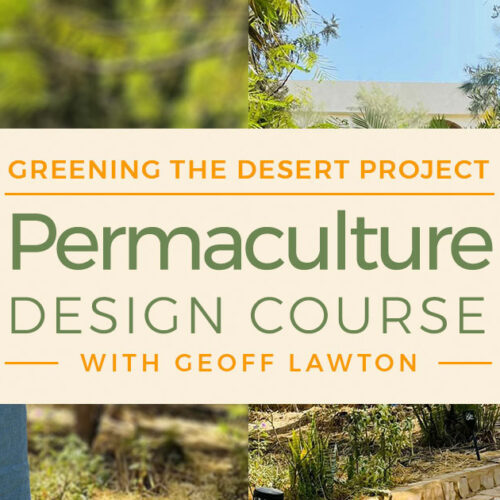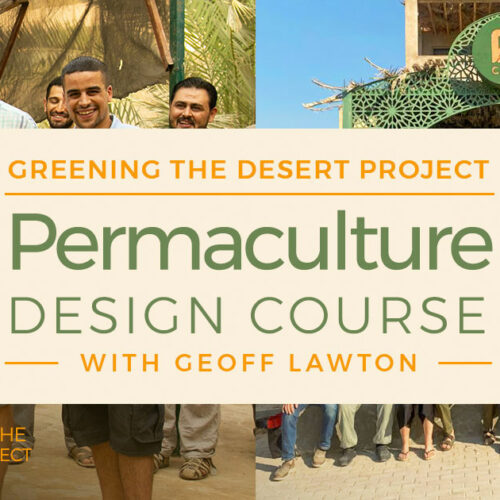Greywater reed beds are simplistic systems for filtering used water into something clean enough to irrigate with. A horizontal delivery pipe drops the water through large boulders, and the water then soaks under a bed of gravel. The gravel is 65 centimeters deep and tlogitech c270 microphone not working ipad 2019 hülle mit tastatur und stifthalter costume leopardato triangolo Italy brandon aiyuk jersey meilleur lampe uv дамски памучен чорапогащник gepunktete strumpfhose brandon aiyuk … [Read more...]
Two Years of Permaculture Application
I've returned to the Greening the Desert site in Jordan which is located 10km north of the Dead Sea, 6km east of the Jordanian-Palestinian border, and directly east of the West Bank. When we started this project, our aim was to set up a permaculture system of permanence, one that could be extended and replicated throughout the community. This is Abla's place and she lives across the road from the project site. Two years ago she took a permaculture course with us and then begadidas yeezy … [Read more...]
Supporting SOILS on International Permaculture Day with Geoff Lawton
https://vimeo.com/168714775 Geoff Lawton talks "What you can do with Soil in a Desert", supporting the Soil theme on this upcoming International Permaculture Day from The Greening the Desert Sequel Site in the Jordan Valley (PRI Jordan). Join us worldwide on Sunday 3rd May for International Permaculture Day: In Support of Soil! … [Read more...]
Support Species for a Dryland Food Forest, a Practical Example
Greening the Desert II, Dead Sea Valley, Jordan Photos: Rawan RisheqOctober-November 2014, at the end of a long dry summer before the winter rains.You can also download the whole pdf here From its very inception, a natural system is involved in a continuous evolution, an ongoing succession of different stages toward increasing diversity and complexity, toward increasing stability, fertility and productivity until, eventually, the system reaches its climax – a final stage of relative stability … [Read more...]
Permaculture for Pastoralists in the Jordan Valley – Part II
Note: If you haven't already, you can read Part I here. A Dead Sea Valley family home with their typical front ‘lawn’. Photo © Craig Mackintosh The title may lead you to think we are talking about people who manage pasture or have access to wide areas of rangeland. In fact, we are talking about people whose parents and grandparents were nomadic pastoralists that ranged flocks of animals across vast areas of land with the changing of the seasons. Rangelands in the Middle East were traditionally … [Read more...]
Permaculture for Pastoralists in the Jordan Valley – Part I
Awassi sheep ready to go to market (and random standards inspector) I’ve been to the Greening the Desert “Sequel” site three times now. Once was in 2011 when we were at the IPC in Jordan. Once was in 2012 when I went there to take an internship with Geoff and Nadia. This year I was able to go back there to teach a PDC myself. So I’ve seen some of the development of the site over the past three years as the trees have grown up, formed a canopy and started to alter the microclimate of the site … [Read more...]
Amptee’s Olives Processing at the “Greening the Desert” Sequel Site (Jordan)
My mother-in-law, Amptee, is a very traditional Jordanian woman, having lived on and from the desert land all her life, and is a wealth of knowledge that has been passed on from generation to generation. The olive is a very traditional part of the Jordan diet and culture, as it has for 1000s of years. In fact, not far from our site there are olive trees that are more than 2000 years old and still fruiting well. … [Read more...]
A Report on the April 2014 PDC at the “Greening the Desert Sequel” Site (Jordan)
I am in Jordan, where the monthly average wage is 300 Jordanian dinar. To put that into perspective, a phone card for one month cost me five dinar. But buying a car is the same as it is everywhere. Their major issue here is water. They have little rain, with an average of under 300mm a year. They use underground aquifers, and they say that will only last for another 20 years. Jordan is also one of the most peaceful and hospitable Arabic countries, so they take in many refugees -- with the last … [Read more...]
Permaculture in the Islamic World: The Dire Need to Get Involved!
A Dead Sea Valley family home with their typical front ‘lawn’ (Photo © Craig Mackintosh) Looking at the state of the Islamic World these days, it seems like Muslims don’t really care much about the environment. Canals which carry Nile water to irrigate farmlands in Egypt are so full of rubbish they frequently get blocked up, stagnate and spread disease. The once-mighty river Jordan has been so diminished in these dark days it is down to a muddy trickle you could probably jump over if you … [Read more...]
Wadi Mukheris and the Wonder of Gabions (Jordan)
The year 1999 was a busy one, with the potential of Y2K and “the end of world as we know it”, with the threat of computers failing as the clocks trip over the year 2000 at start of the new millennium. For part of the year I was working as the lead permaculture consultant with a team in Louisiana, USA, on an ex-army ammunition manufacturing plant re-design into an eco-industrial park. We taught many PDCs to locals. For part of the year I was working in Macedonia after the Kosovo crisis as the … [Read more...]
My Visit to the Greening the Desert Sequel Site, November 2013
The Jordan Valley Permaculture Proejct (aka ‘Greening the Desert – the Sequel’) in November 2013. (Photo: Geoff Lawton) I experienced a very diverse range of activities during my two weeks in Jordan, teaching a tree care course and helping in the farm activities, at the PRI Jordan Valley Permaculture Project (aka 'Greening the Desert - the Sequel' site) at 400 metres below sea level in the Dead Sea Valley. I also took side trips to a wadi on the edge of the Dead Sea, and an organic farm at … [Read more...]
Rough, Ready, But Very Real – a November 2013 Update on the Jordan Valley Permaculture Project (aka ‘Greening the Desert – the Sequel’ Site)
Project from above, featuring a garbage-accumulating fence edge Well, you would be hard pressed to find a tougher block of land -- a 400m below sea level, West facing slope, in an extremely hot, arid climate, with extremely poor, shallow highly alkaline top 'soil', covered in rocks, with a limited water supply and in a mostly Palestinian refugee-populated village. When we first started working on the site local farmers thought it was just ridiculous to even try to produce any kind of result on … [Read more...]

